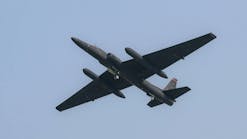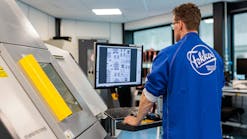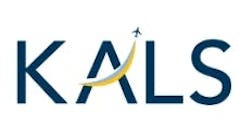Boeing and Its Suppliers Fall Short on Safety Oversight, Senate Whistleblower Report Says
Dec. 14—Seven named whistleblowers — from Boeing, jet engine supplier GE and the Federal Aviation Administration — allege fundamental problems with safety oversight in the aerospace industry, according to a report released Monday by Democrats on a U.S. Senate committee chaired by Sen. Maria Cantwell.
One of the whistleblowers, newly identified as high-ranking Boeing engineer Martin Bickeboeller, claims that more than three years after the deadly MAX crashes Boeing is still unwilling to fully acknowledge lapses in compliance with safety standards.
In an October complaint to the FAA that's included in the Senate report, Bickeboeller wrote that this has produced "a dangerous culture not conducive to the proper safety of aerospace products."
Altogether, two engineers and a production manager at Boeing, three FAA safety engineers and an engineer at jet engine-maker GE were extensively interviewed by the committee and presented written testimony to lawmakers hoping to reinvigorate the FAA.
Commerce, Science, and Transportation Committee staff provided an advance copy of the report to The Seattle Times. While the concerns of four of the whistleblowers were previously made public and were widely covered, three are named for the first time and two make new allegations of continuing issues with safety oversight this year.
Bickeboeller, a Boeing Technical Fellow, alleges in his FAA complaint that Boeing's oversight of manufacturing work at its suppliers remains inadequate — though he had flagged the issue for years internally and in a prior complaint to the FAA.
The new 99-page complaint details Bickeboeller's yearslong internal battle with Boeing's ethics and legal departments and his engagement with senior executives about his concerns.
Boeing spokesperson Jessica Kowal said the company takes concerns raised by employees "very seriously." She said management assessed Bickeboeller's concerns multiple times over the years but didn't fully agree with his conclusions.
Another newly disclosed whistleblower in the report who raises new allegations is Richard Kucera, who led the team of GE engineers that worked on behalf of the FAA to conduct engine inspections and ensure that production of the massive GE9X engine for the 777X complied with FAA safety regulations.
After discrepancies discovered late in the process complicated the production certification of that engine, Kucera alleges he was blamed and came under "extreme pressure, intimidation, and coercion" that he says forced his resignation in May.
In an interview with The Seattle Times on Saturday, Kucera said GE management's treatment of him reveals a fundamental conflict of interest: "making the inspector responsible for what is inspected." He too has submitted a formal complaint to the FAA.
GE spokesperson Perry Bradley said the company thoroughly investigated Kucera's case and found no "undue influence," a term used to signify inappropriate pressure on an employee working on behalf of the FAA.
The FAA said it is reviewing the complaints by Bickeboeller and Kucera.
"The agency takes all whistleblower allegations seriously and does not tolerate retaliation against those who raise safety concerns," spokesperson Crystal Essiaw said via email.
FAA reform questioned
A third whistleblower in the report, veteran FAA safety engineer Mike Dostert, who testified to the committee last year but was until now anonymous, bolstered previous allegations by others that FAA managers routinely overrule technical specialists and grant Boeing unwarranted exemptions from the latest safety requirements for planes like the 737 MAX that are based on older designs.
"The FAA has lost our world leadership role in aviation due to a safety culture now driven by political forces that take the side of industry," Dostert wrote.
The report also includes previously reported testimony from former Boeing engineer Curtis Ewbank, former Boeing senior manager on the 737 MAX production line Ed Pierson, former FAA engineer Joe Jacobsen and former FAA engineer Michael Collins.
Their testimony helped push a reform of the FAA airplane certification process through Congress late last year.
Appearing before Cantwell's committee last month, FAA Administrator Steve Dickson testified that his agency is moving to implement those reforms and fix its oversight of Boeing.
The Aviation Safety Whistleblower Report concludes that Boeing and its suppliers put undue pressure on and retaliated against engineers conducting safety inspections and assessments on behalf of the FAA and that warnings about safety issues from senior engineers with advanced technical expertise have been ignored.
And the report states that "systemic problems continue to exist" within the FAA oversight system, including too much delegation of work to the manufacturers, policies that allow older-design airplanes that don't meet the latest safety standards to be certified, and a shortage of technical engineering staff at key FAA offices.
In a letter sent along with the report to FAA chief Dickson, Cantwell wrote that "Together, these allegations illustrate the importance of a course correction that puts safety first and listens to the voices of line engineers."
A standoff with Boeing ethics and legal
Bickeboeller is one of the highest-level technical employees at Boeing in the field of "configuration management," which means ensuring that the planes produced are built exactly to the design specifications.
In the troubled early years of the 787 Dreamliner program, as far back as 2007, Bickeboeller documented serious manufacturing problems at major 787 suppliers, especially at Alenia in Italy, Mitsubishi Heavy Industries in Japan and supplier facilities in North Charleston that later became Boeing South Carolina.
These suppliers were delivering 787 wings and large fuselage sections that did not meet Boeing's manufacturing specifications. This became glaringly public when the first 50 or so 787s assembled in Everett had to be repeatedly pulled apart and repaired.
The earliest 787s used in test flights were so reworked most were donated to museums as unfit to fly and unsalable. The early production planes — line numbers 7 to about 19, dubbed "the Terrible Teens" — were sold at steep discounts.
When Bickeboeller's warnings to managers failed to spur action, he filed internal ethics complaints and then, in 2014, a formal FAA complaint.
Boeing managers removed him from the 787 program and lowered his performance review scores. At one point, company investigators interrogated him about whether he was raising fake concerns so that he would have to travel to Italy and could visit his mother in Germany.
In 2016, the FAA substantiated Bickeboeller's allegations about the Italian supplier and Boeing agreed to implement corrective actions. That FAA investigation did not scrutinize the other suppliers.
That year, Bickeboeller dropped a whistleblower complaint he'd filed with the Department of Labor alleging illegal retaliation, telling the judge that he wanted to work with Boeing to address the underlying issues and that the company had promised a senior executive would look into his concerns.
Bickeboeller's new FAA complaint makes clear that he believes the company's quality control oversight is still wanting.
In the complaint, Bickeboeller states that in December 2020 he told managers that two violations the FAA identified in a 2008 audit, related to oversight and control of parts from lower levels in the supply chain, continue "to be a systemic problem."
His complaint cites a February 2021 email exchange between senior Boeing management stating that "Martin is right, we are not following the processes" but adding that "there's no evidence of it causing a safety or airworthiness issue."
Bickeboeller briefed Boeing's legal and ethics teams. He sent an email to CEO Dave Calhoun early last year.
In response, Boeing had investigators and its chief counsel assess the allegations, though they turned down his request that Bickeboeller be allowed to brief experts. In an email to Bickeboeller in April, Boeing gave its verdict that "no further action is needed."
Bickeboeller sees his job reassignments and the ignoring of his latest warnings as evidence of a broken safety culture at Boeing.
"The culture of regarding procedural violations as an issue to be dealt with when it is convenient is endemic at Boeing," he wrote.
Boeing, in a statement, said the company "takes concerns raised by our teammates very seriously and thoroughly investigates them to ensure that they are fully addressed."
The statement added that the issues Bickeboeller raises are not related to the manufacturing defects that have largely halted deliveries of 787s for more than a year — chiefly small gaps at fuselage and other structural joins. Boeing said it is conducting comprehensive inspections and is being transparent with the FAA.
"We are taking the time to ensure that all jets conform to our exacting engineering specifications," Boeing added. "Based on engineering analysis, none of the issues present an immediate safety of flight concern to the active in-service fleet." Reached by phone Saturday, Bickeboeller said he could not comment.
Threat of termination
In this letter to the Senate, former GE engineer Kucera notes that GE previously had been highly regarded for the high standards of this internal unit for certifying engines.
In an interview, Kucera said that began to change after the coronavirus pandemic hit and GE saw a surge in retirements.
In April 2020, Kucera's team inspected the GE9X engine that the company presented for final certification of that engine's production system and identified multiple compliance discrepancies.
These weren't safety issues — some engine components simply differed from the final production design — and the engine achieved its production certification in October 2020.
However, Kucera alleges he was subsequently held responsible for the discrepancies.
In March 2021, GE management placed him on a "coaching plan," a scrutiny of his performance that included an explicit warning that "failure to demonstrate sustained improvement in your performance will result in further actions ... up to and including termination."
At this point, Kucera's wife was expecting their second child and the threat of losing his job and the family's health coverage was stressful.
In May, he told his managers he would resign unless they removed the threat of termination. GE management declined to do so and accepted his resignation.
Bradley, the GE spokesperson, said the independence of the unit that inspects engines on behalf of the FAA "is fundamental to GE Aviation certification activities."
He said no employees were involuntarily laid off in 2020 and that the number of inspectors dropped naturally because of a decline in certification activity.
Since leaving GE, Kucera has worked on contract with various aerospace companies as an FAA-appointed Designated Airworthiness Representative, meaning he is qualified to certify work on behalf of the safety agency.
Typically he's helping smaller aerospace companies certify parts or systems that they supply to larger companies. He cites a recent job for Northwest Aerospace Technologies in Everett, now part of French aerospace group Safran, where he worked on certifying an airplane passenger cabin modification.
At huge companies like Boeing or GE, such certification work is delegated to their own employees, who may perceive management pressure to not let the certification process hold up the production schedule.
At smaller companies, in contrast, management must do whatever it takes to get the outside inspector's approval, Kucera said.
At Northwest Aerospace Technologies, "we ruled that modification," he said. "When we said no, it was pretty much no."
Kucera said oversight by an outside inspector means smaller companies "operate at a higher level of integrity than Boeing and GE."
___
(c)2021 The Seattle Times
Visit The Seattle Times at www.seattletimes.com
Distributed by Tribune Content Agency, LLC.




